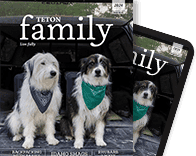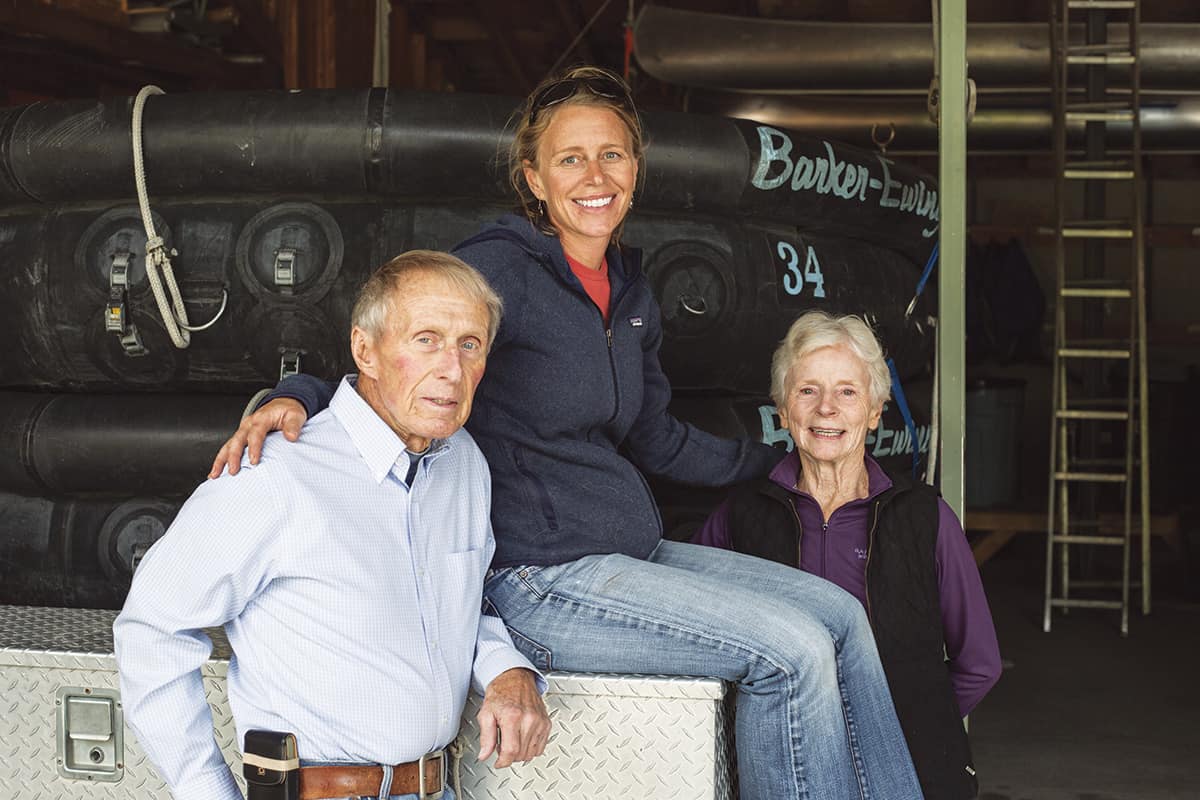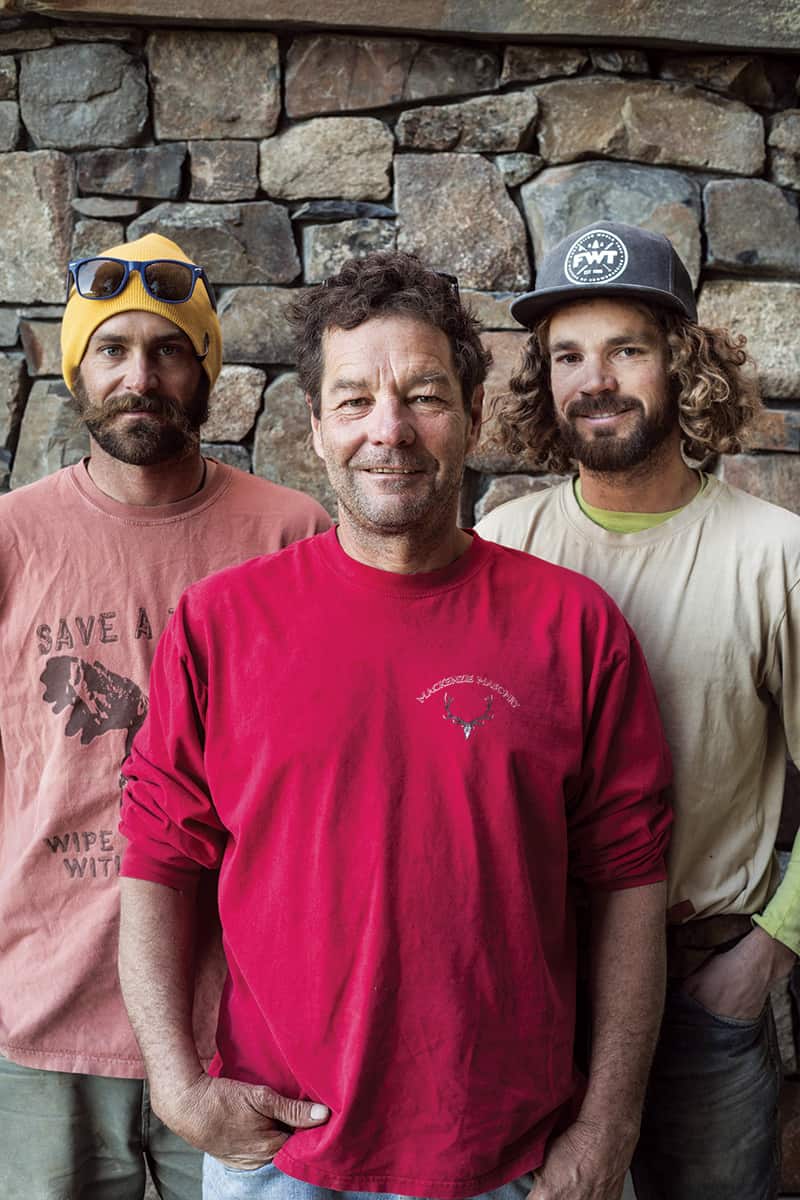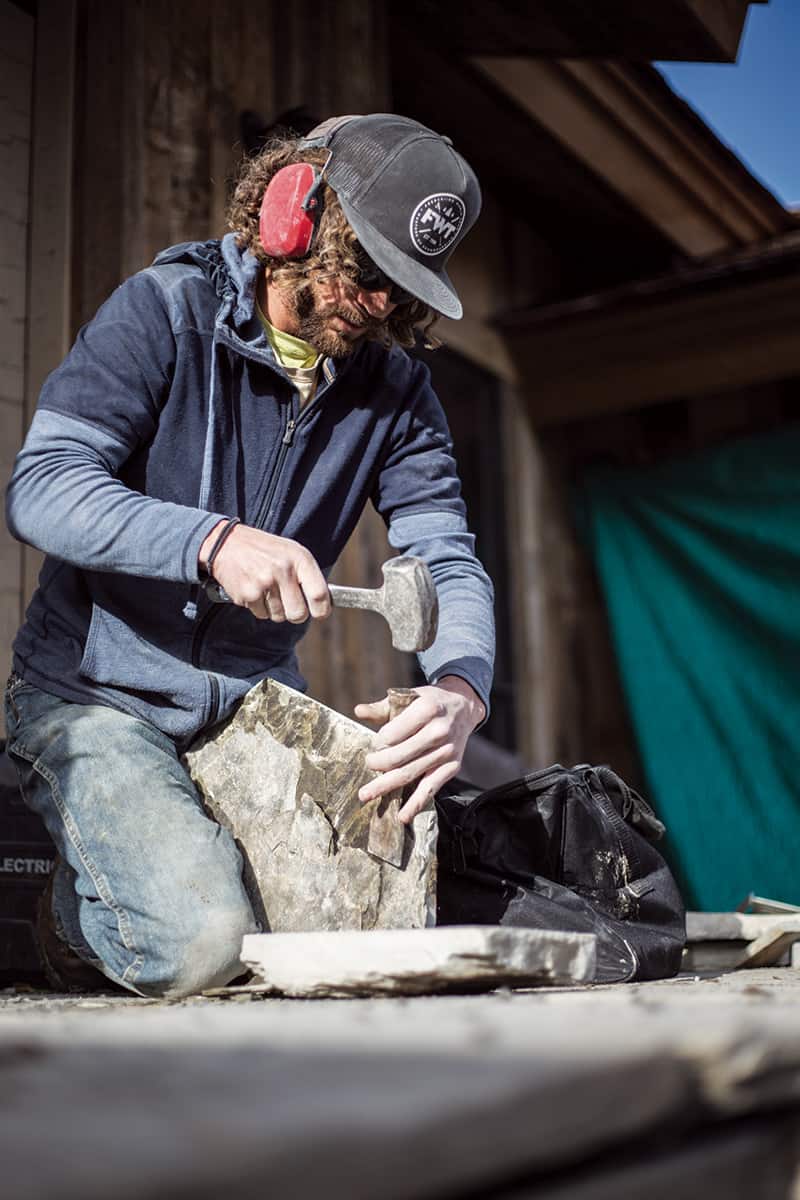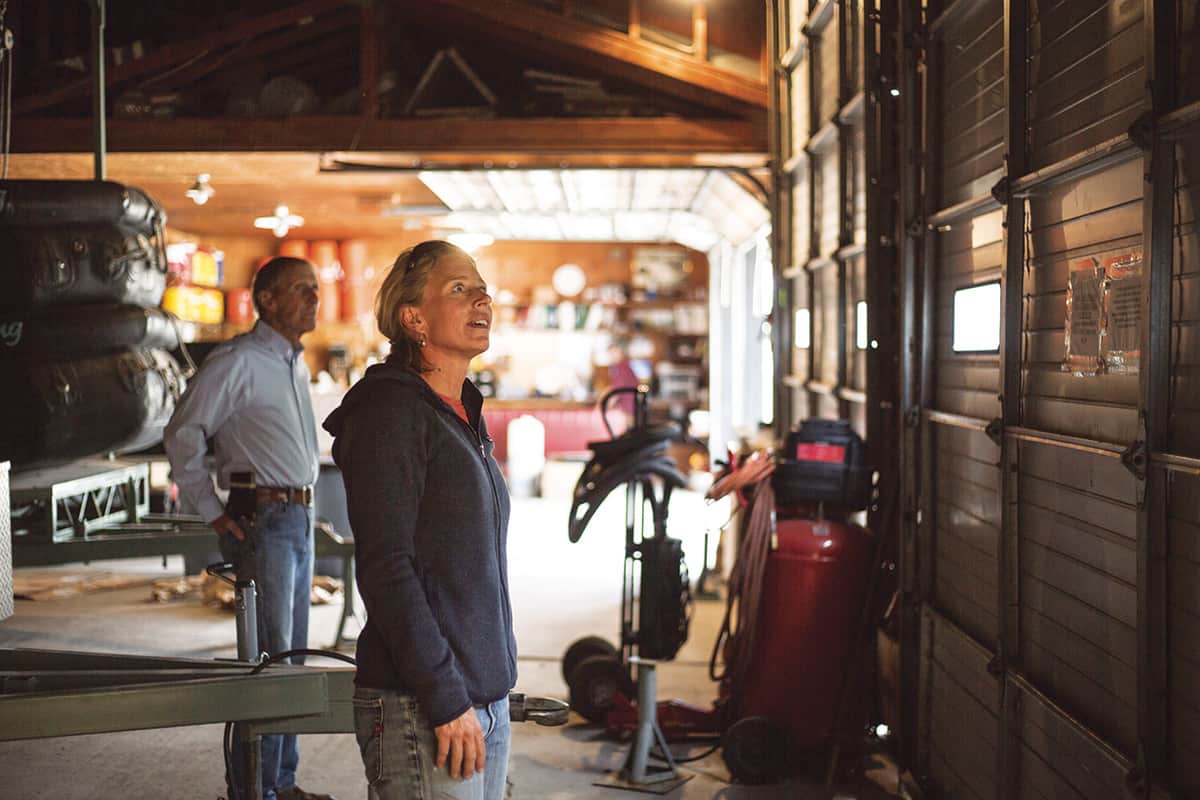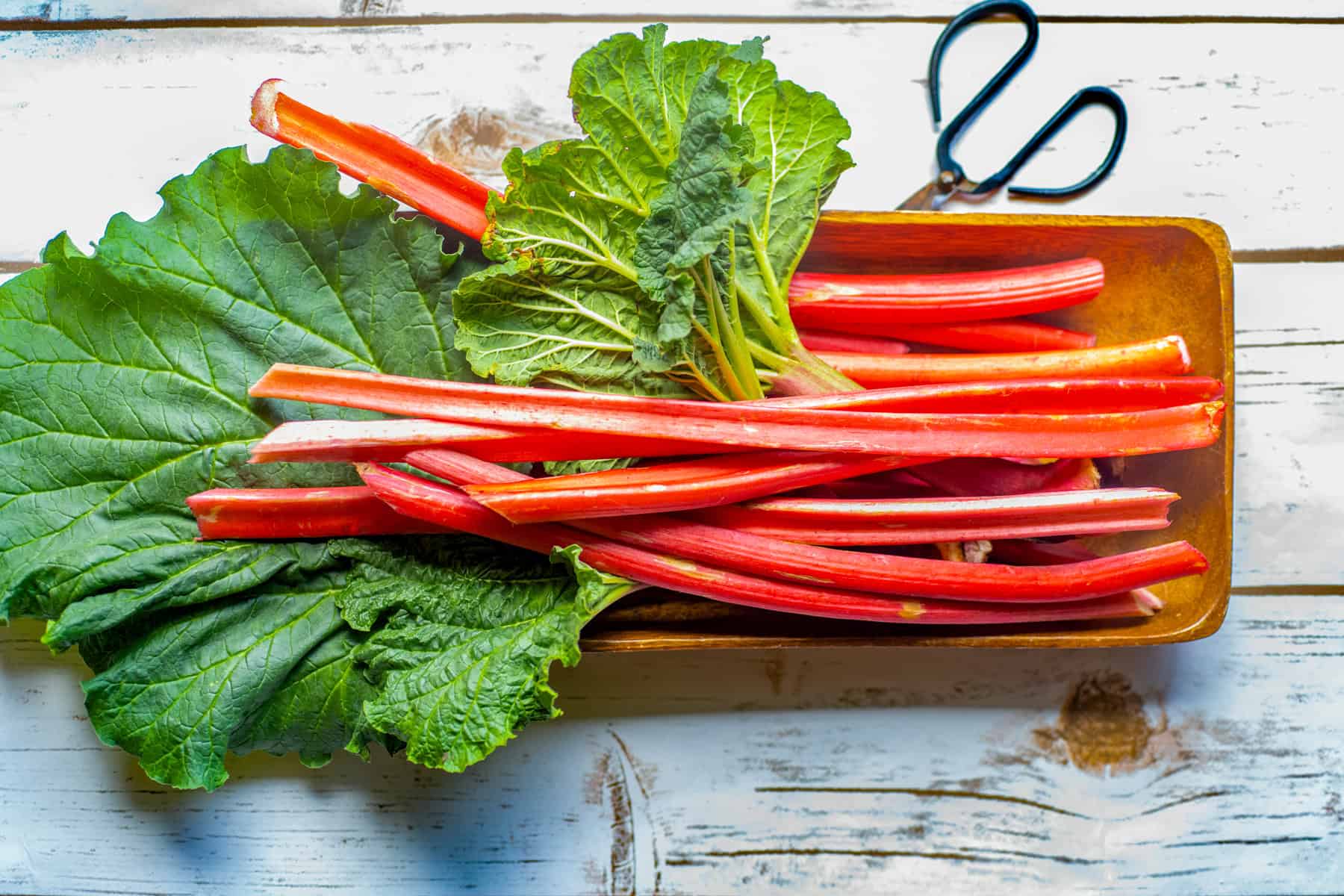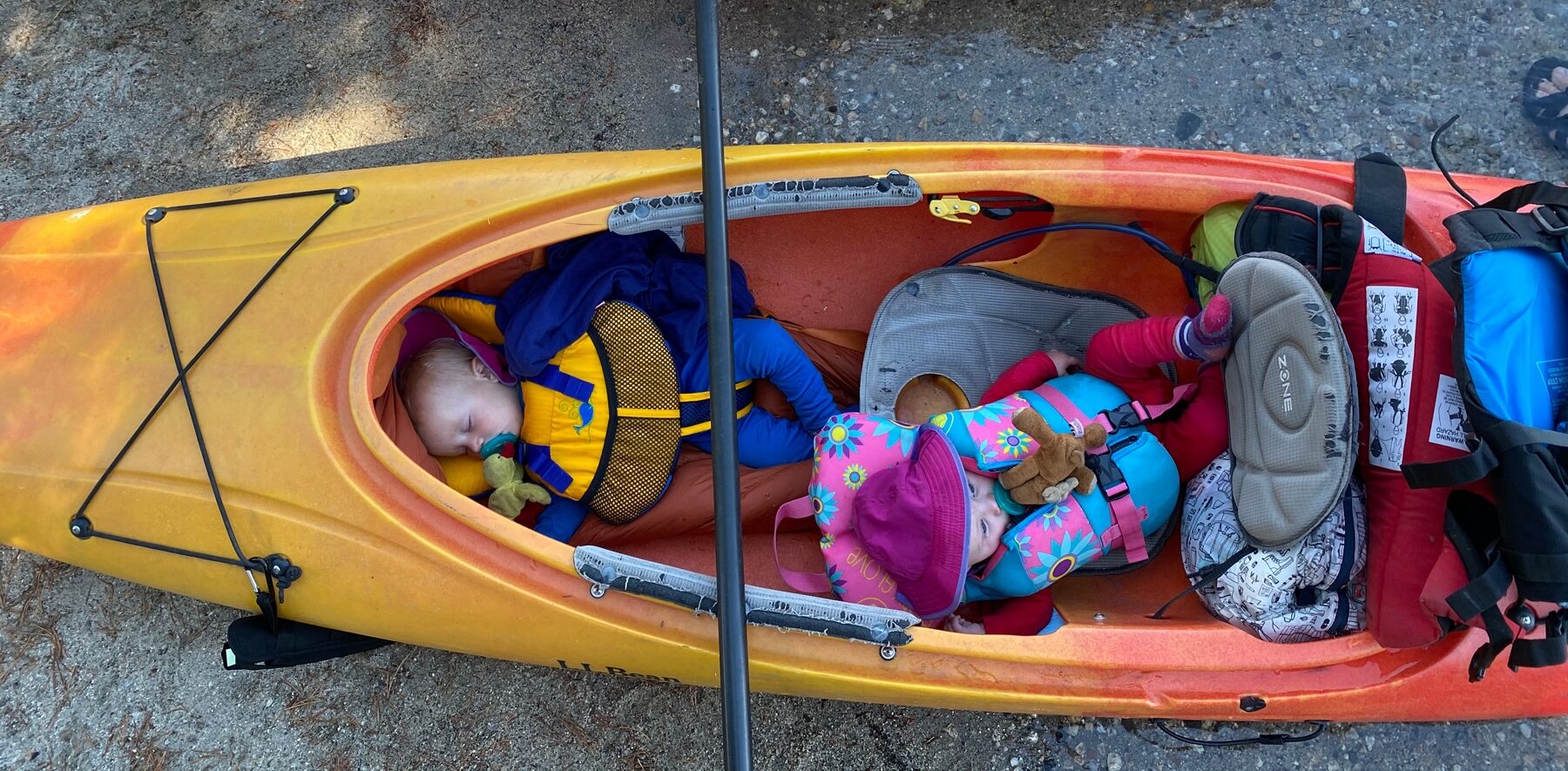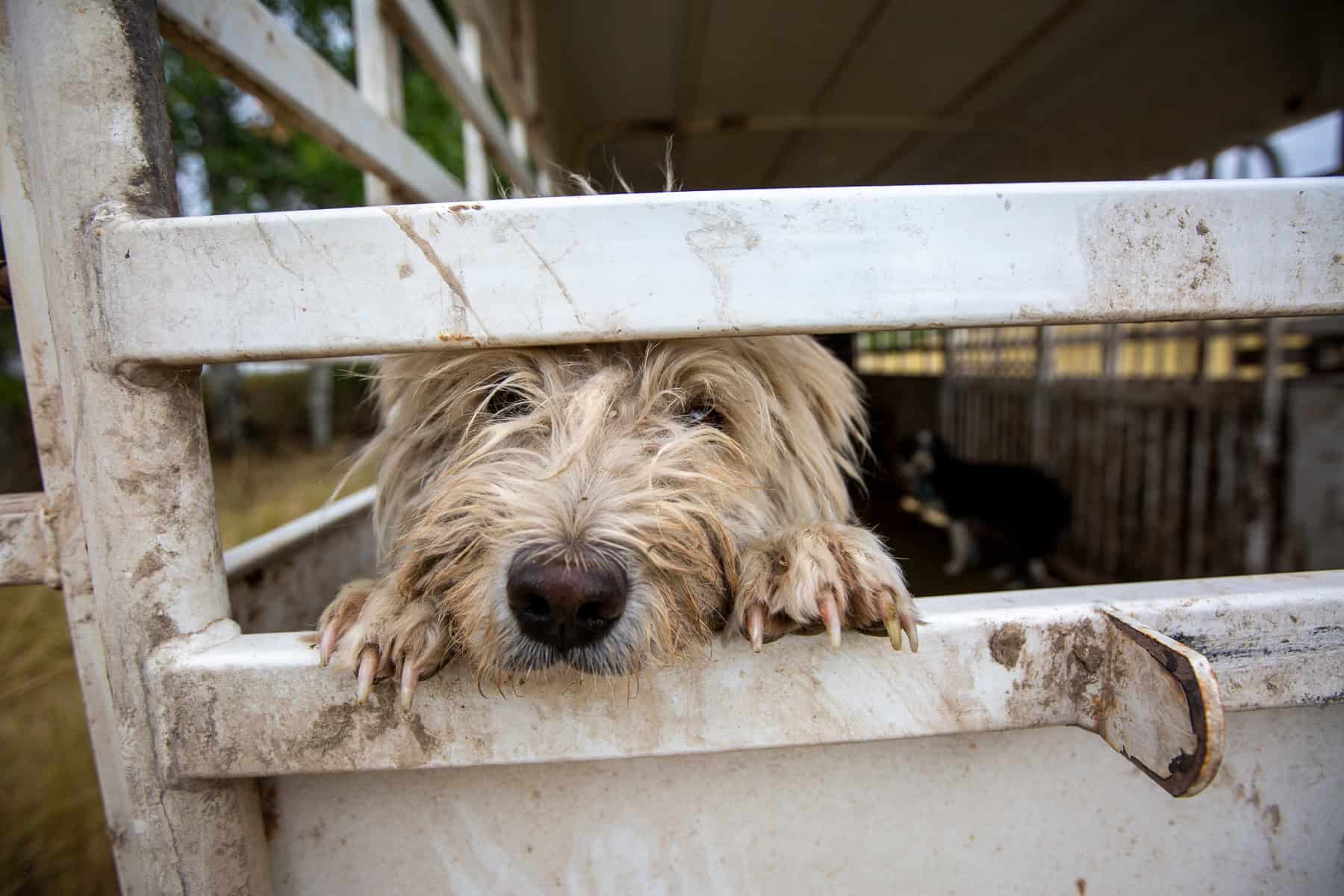By Christina Shepherd McGuire
Photography by Ryan Dorgan
–
Mountain towns are so typical … at least to those familiar with the scene. People move in or grow up here, develop an ingrained fervor for anything outdoorsy, and land a seasonal job that barely pays the bills. Then, after several years of just scraping by, they either abandon the lifestyle for less-than-greener pastures or hunker down, committed to making their passions their life’s work.
I guess you could say that those who stick it out here—in a seasonal economy more fickle than the mountain weather—really want it. Or maybe they just got stuck in a rut (albeit a good rut to get stuck in). I caught up with two families that made economic success stories out of what were once just seasonal summer jobs. And while, arguably, they just can’t wait for the downtime, it’s the “go time” that feeds their souls.
A Hard Rock Life
When I first called Dana Mackenzie, owner of Mackenzie Masonry, to interview him and his two sons, Gary and Max, his tentative response was, “The boys are a bit cranky.”
“Why?” I asked.
“Well—because ski season just ended, and they have to go back to work, of course,” he said.
I understood completely. The last thing Gary and Max wanted to talk about during the “letdown season” was how they bust their butts all summer for their family’s masonry company, specializing in custom decorative stonework.
I’ve known the Mackenzie family for—let’s say—twenty years, and I like to tease that when I first met Gary (thirty-three), Max (thirty), and Kelly (twenty-three), they were barely out of diapers. I spent my summer weekends at their camper enclave on Palisades Reservoir—wakeboard in hand—hoping the Mackenzies would give me a tow behind their boat. Dana would show up late to camp on Friday night. His eyes were glazed from his sixty-hour workweek, but the party didn’t start until he got there. I put them on a pedestal—this hardworking family that played equally as hard—hoping that someday my husband and I could replicate their lifestyle.
You see, entrepreneurship is in Dana’s blood. At the age of twelve, he remembers picking rocks from the fields on the “lower eighty” of his family’s 160 acres that straddled the Wyoming-Idaho line. They were a ski family from Sun Valley that migrated to the Tetons well before Grand Targhee Resort took root.
“Just about anytime there weren’t ranch chores to do, guess where you ended up? Picking up rocks,” Dana recalls. He remembers thinking (pitchfork in hand), “What if we could just turn these into money?”
A few years later, he went to work for his step-uncle, Brent Hammond, who dabbled in masonry. Brent started out laying cinder blocks on the ends of potato shelters and then branched out into rock art, teaching himself how to build stone fireplaces. One summer, when Dana’s hours were cut to part time after he asked for a raise, he decided to branch out on his own. He bought himself a turquoise pickup truck, a wheelbarrow, and a trowel—determined to make it in rock art.
So, with stovepipes around their legs (to fend off potential snakebites), Dana and his wife, Deb, collected rocks near Hell’s Half Acre for his first real job in Jackson. And, in 1983, he hooked up with a partner to run a successful business for twenty-five years. “That was officially the end of my ski bumming,’’ says Dana. “I had two kids and a beautiful wife. … It didn’t matter if it snowed three feet anymore. I had entered the real world at a time when Jackson was going bonkers.”
Today, Mackenzie Masonry has three bosses (Dana and his two sons) and a revolving door of employees that they hold to high standards—standards they were all taught as kids. The three men go back and forth explaining the ethic and pride they aim to instill in those who work for them. “There’s a certain way that [artistic rockwork] needs to be done,” says Gary. “It’s the difference between having a Sara Lee box cake and going to a real baker.”
Gary and Max both agree that working in the family business has taught them a level of forward-thinking and problem solving that cannot be learned in the classroom. “This is our college education,” says Gary. To that Max adds, “Some people may call it old-school [to work in a family business] and some may call [it] rare,” but what they have is special because they can provide an art form that many others don’t have the talent or know-how to do.
It’s apparent that the struggles of running a dynamic jobsite every day take a toll on these men. Still, the family unit is unwavering and proud. “I have drug these guys through the college of masonry,” explains Dana. “What it has brought to them and my family is confidence and a compassion for fellow humans that can’t be taught, only experienced. When I look at them now as young men, I personally couldn’t be prouder.”
Deb admits that all three of the men take so much pride in their work that their daily pressure is amplified. Still—as I learned when I first met them—it’s the collective head on this family’s shoulder that knows when to let its hair down. “Max and I get up at 5:30 a.m.,” says Gary. “We make coffee, pack lunch, sometimes spend two to three hours commuting on top of an eight-hour work day. All you really want to do when you get home is relax, but you almost always have to just take a run or walk to shut it off.”
To find balance, the boys save enough money over the summer to skate (or ski) through the winter season. They are both regional ambassadors for Jackson Hole Mountain Resort, trading photo sessions for season passes. They attend regional big-mountain ski competitions and enjoy lift-accessed, backcountry, and snowmobile-accessed skiing.
“We like to live in the moment,” says Max. “Skiing is a good way to take your mind off of masonry [or anything that might be putting weight on our shoulders].” And while they all agree that there’s many a lost night of sleep in this business, it’s the hard play and the solid family values that make it all worth it.
Not Just Floating By
“Timing is everything,” says Heather Ewing of Barker-Ewing Whitewater, as she speaks about the pioneering of the guided boating industry.
Whitewater rafting wasn’t even a concept in the early days, and no one foresaw the tourist boom that would overtake the region. But Heather’s father, Frank Ewing—founder of their family business and the first-ever river boss for the Grand Teton Lodge Company—was more than in the right place at the right time.
“He was green as green can be,” she says of her father, who ran guided tours on the Snake River in the late 1950s, “but he tackles everything with 110 percent.” In fact, his first blind date with wife Patty included a ski on Mount Glory and square dancing at night (I guess he hoped she could keep up). And keep up she did as, years later, this schoolteacher fully supported Frank’s decision to guide on his own.
“It was so small and organic back then,” Heather says of the times. “They started out with no life jackets. People wore top hats and were dressed to the nines!” The couple later met Dick and Barbara Barker, and, with no real vision (according to Heather), Barker-Ewing Scenic Tours was born in 1963.
Heather’s not really sure whose bright idea it was, but in the early ’70s, Frank, Patty, Dick, Barbara, and two veteran guides dropped into the Snake River Canyon for an exploratory run and an “aha” moment. On this first whitewater trip—in a nonarmy-issue boat with twenty-foot ash oars—they got fully worked in a massive hydraulic. “Everyone was wet and cold, and the men were scooping up the ladies and relocating them in the boat for counterweight,” says Heather. They managed to clear the feature without upsetting their boat, but broke all three oars. Today, this Class V reversal named Three Oar Deal Rapid is one they look out for when running the canyon. And despite the scare, the experience nudged them enough to add whitewater rafting to their commercial offerings.
Barker-Ewing Whitewater—with a season solely reliant on Mother Nature—offers scenic float trips, scenic trips with meals, overnight trips, and whitewater rafting trips. But when they shove it all into four and a half months of summer, it’s only natural to question the lifestyle. “It’s not a hand-over-fist, moneymaking thing,” says Heather. She explains that while they make their money in the summer, they also hope the phone rings in the winter. The company operates under the same permits that it did in the ’70s, keeping the real estate tight and the need to come up with creative trip offerings essential for survival.
It’s challenging to keep the pocketbook afloat during the off-season, too. “In 1985, we leased our whitewater shuttles to Start Bus [in the winter],” says Heather. She explains how they built ski racks for the shuttles transporting skiers from town to Teton Village and back. If there was a maintenance issue, Frank would work nights at the boathouse making sure the shuttles would go. Frank also moonlighted as the ski director at Jackson Hole Mountain Resort. Today, the company employs only three year-round staff, 95 percent of their shuttle drivers are also school bus drivers, and a few of their guides are teachers. As for Heather, she also runs a property management business where you’ll find her doing fieldwork or fixing something. Last season, she got on the river only once. “You do what you have to do to be in this place,” she says. “This unique community collaboration is what keeps the wheels turning.”
Growing up on the river taught Heather the value of this area. “There is a limitless world out your doorstep that gives back to you infinitely,” she says. This sentiment is apparent in every trip Barker- Ewing offers. It’s a sentiment that keeps tourists grasping for the dangling carrot once they return home. And sometimes it’s the trip that hooks them on the area’s lifestyle. “My goal is to give that person a great experience so that they want to do it again,” says Heather.
And she’s completed her goal—time and time again—because while many go back to their desk jobs only to dream about their trip, there are also those who return because the experience altered their life. I suppose I might be one of them. And maybe you are, too. Because despite the hardships we all endure to finally “make it” here, we were able to stick it out—as the bug was much bigger than the bite.
